PsychNewsDaily Publishers
100 Summit Drive
Burlington, MA, 01803
Telephone: (320) 349-2484
PsychNewsDaily Publishers
100 Summit Drive
Burlington, MA, 01803
Telephone: (320) 349-2484
Phone calls foster deeper emotional connections than texting by conveying tone and warmth, enhancing relationships through immediate feedback and shared experiences. Texting lacks these emotional nuances.

In today’s fast-paced world, people often rely on texting to communicate. While texting is quick and convenient, it misses out on the personal connection that comes from hearing a loved one’s voice. Studies show that phone calls can create deeper bonds and help strengthen relationships more than text messages can.
When friends or family interact over the phone, they can pick up on tone and emotion that text lacks. This shared experience can lead to better understanding and a closer connection.
As people navigate their busy lives, they may overlook the power of a simple phone call in fostering those vital relationships.
The choice between texting and calling can significantly impact how connected people feel to one another. Recognizing the value of voice communication can help individuals form stronger, more meaningful bonds with those they care about.
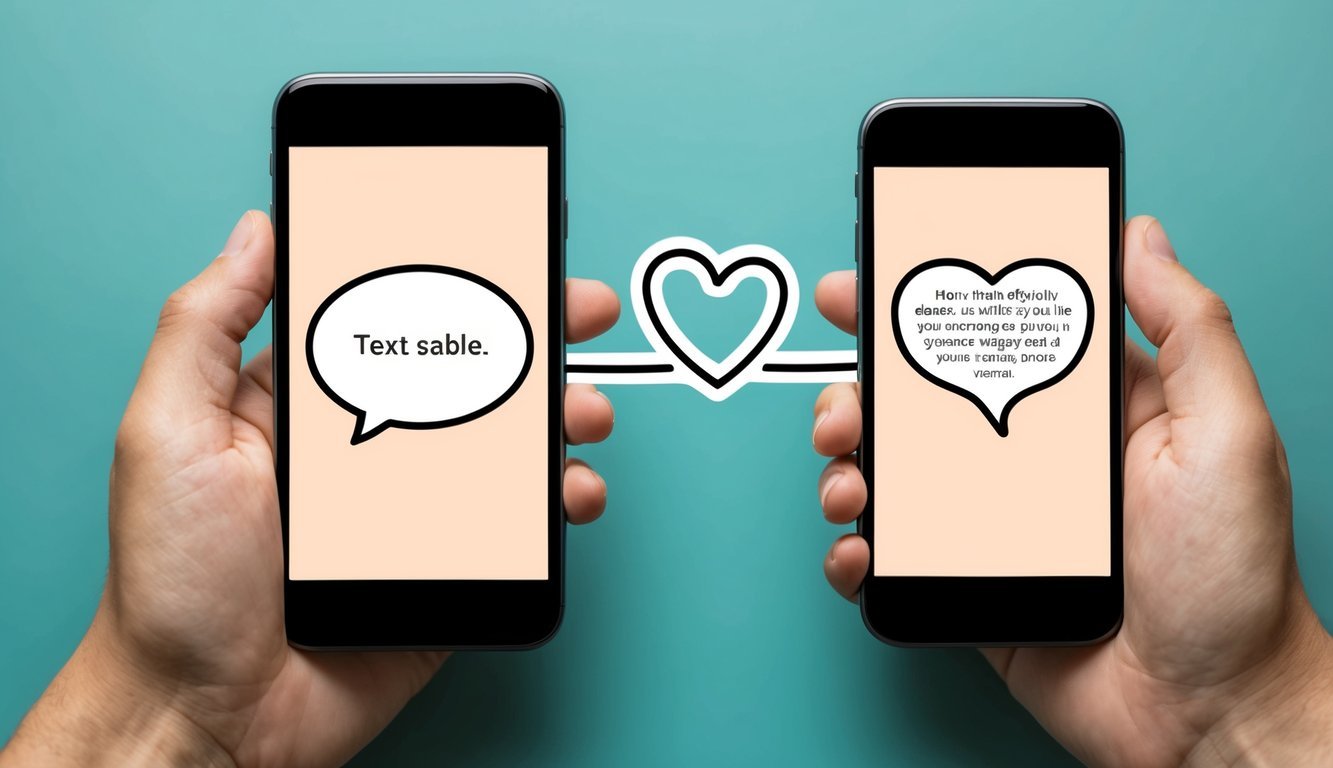
Communication has changed a lot over the years. With new technology, people now have more choices about how they connect. Two main ways to communicate today are phone calls and texting. Each has its own effects on relationships and how people feel connected.
In the past, phone calls were the main way to communicate over long distances. They allowed for immediate interaction and emotional connection. Hearing someone’s voice adds warmth that texts can’t match.
As texting became popular, it changed how people interacted. Texting is convenient and allows for quick responses. People can communicate anytime, but it may lack depth.
Studies show that deeper bonds form through phone calls. For many, the immediacy and emotional tone of a voice call strengthen relationships more than a simple text.
Smartphones have transformed communication by combining calling and texting in one device. They have made it easier to choose between speaking and texting.
Many people now prefer texting for daily conversations, while reserving phone calls for important talks.
Smartphones also provide access to apps that enhance communication. Video calls and voice messages offer new ways to connect. These features can help create strong relationships by adding visual and emotional layers to conversations.
As smartphones evolve, they continue to shape how people communicate and connect with one another.

Different ways of communicating can affect how people feel and connect with each other. Phone calls and texting offer unique benefits and limitations when it comes to building relationships. Understanding these can influence how individuals choose to interact.
Phone calls allow for immediate emotional connection. The sound of a voice can convey warmth and empathy. Facial expressions and tone add depth, making conversations feel more personal.
In contrast, texting lacks these emotional nuances. It is quick and efficient but can lead to misunderstandings. People might misinterpret texts due to the absence of vocal tone and body language.
Benefits of Phone Calls:
Challenges of Texting:
People dealing with depression often prefer texting over making phone calls. It can feel safer, allowing for distance and time to think. Yet, restricting oneself to texts can reduce support and connection.
Those who frequently talk on the phone may experience greater relationship satisfaction. Verbal interactions can foster a sense of belonging and understanding.
Key Points:
Encouraging phone conversations can help strengthen relationships and improve emotional well-being.
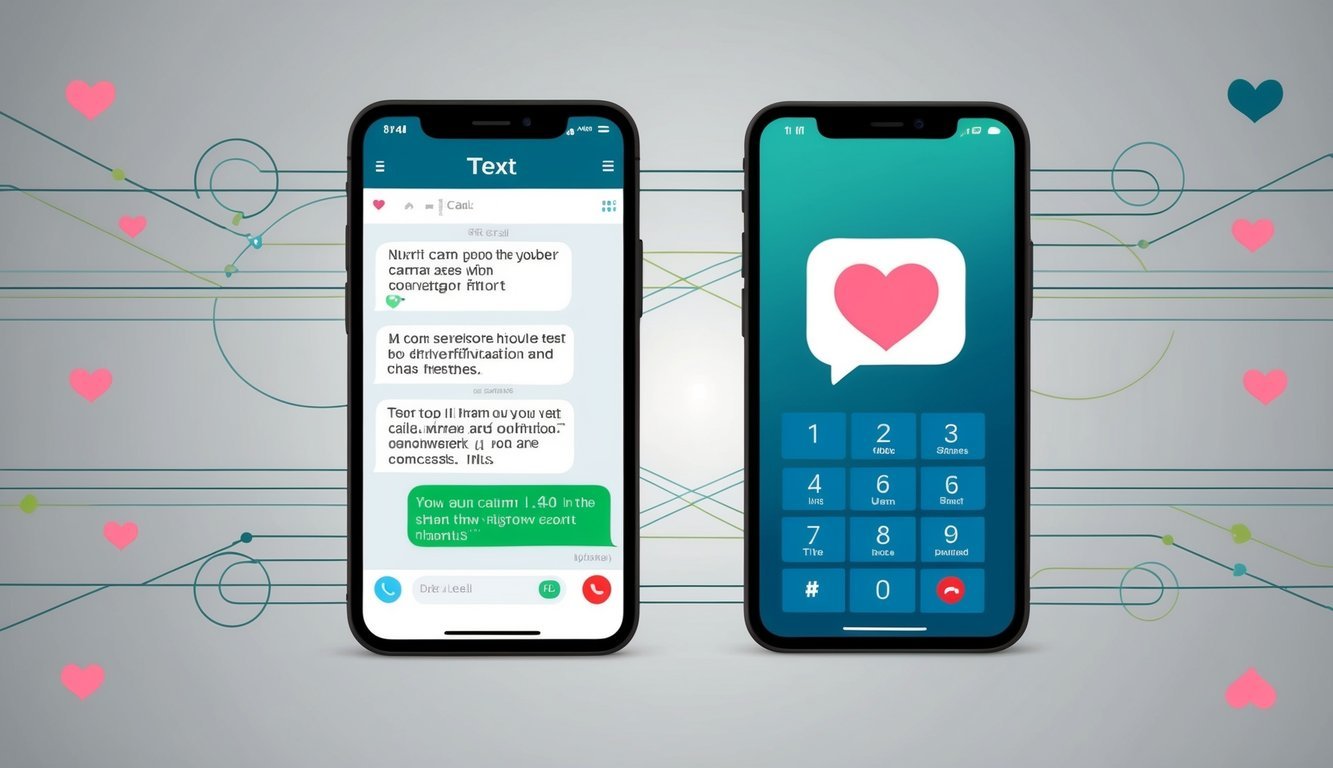
Connecting with others is vital for strong friendships. Phone calls and texting play different roles in how these connections are formed and sustained.
Phone calls can create deeper bonds between close friends. Hearing a friend’s voice adds a personal touch that texting can’t replicate. It allows for tone and emotion to be conveyed clearly.
A study found that when people speak rather than type, they feel more connected. This connection can lead to stronger relationships. This is especially true for sharing important life events or feelings.
Texting is a useful tool for keeping in touch with casual friends. It allows for quick updates and light conversations without requiring much time.
Text messages can help maintain connections over long distances. They provide an easy way to share memes, photos, or short messages. However, while texting is convenient, it doesn’t replace the connection created by a phone call.
In summary, both methods are valuable for different types of relationships. Using them wisely can help maintain and strengthen bonds over time.
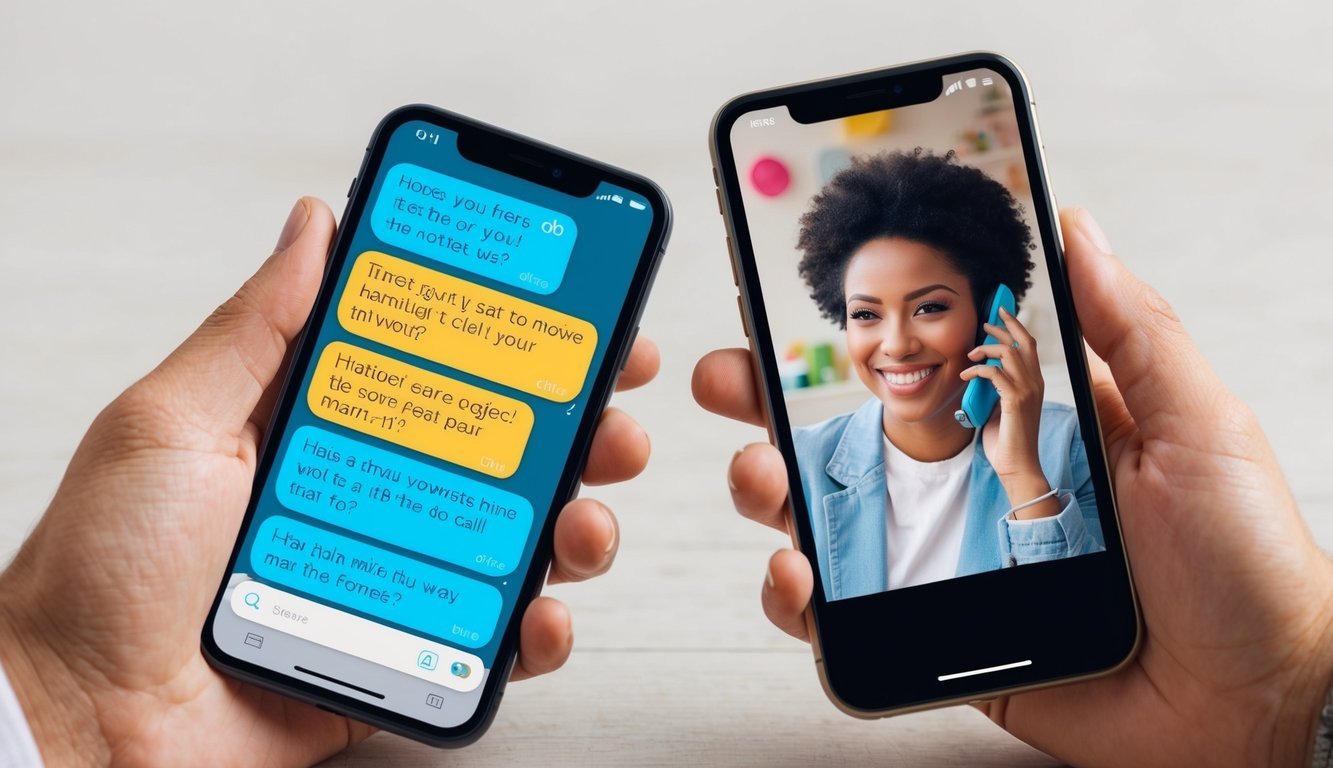
The way people choose to communicate can greatly affect their relationships. Factors like method and frequency can influence how connected individuals feel. This section explores how phone usage, especially in romantic relationships, and the sense of unity created through calls can enhance bonds.
In romantic relationships, communication choice matters a lot. Studies show that hearing a partner’s voice can strengthen emotional connections.
When couples talk on the phone, they often share feelings that texting can’t capture.
Research indicates that phone calls create deeper understanding. During calls, partners can pick up on tone and intonation, which adds layers to conversations. This connection is often missing in texts, where meanings can be misread.
Regular phone conversations help partners stay close. Couples who call each other frequently tend to report higher relationship satisfaction. Voicing thoughts and feelings leads to a stronger bond over time.
Shared experiences are key to feeling united in any relationship. Phone conversations often allow for storytelling and sharing life updates. This creates a more personal connection than texting.
When friends or family make phone calls, they are more likely to laugh and reminisce together. This shared joy builds unity. Voice interactions can turn simple moments into memorable experiences, like discussing a funny incident or making plans.
In addition, hearing voices can offer comfort during tough times. Whether it’s sharing bad news or seeking support, a call can provide emotional reassurance. This strengthens the bond and creates a sense of togetherness, making the relationship more resilient.
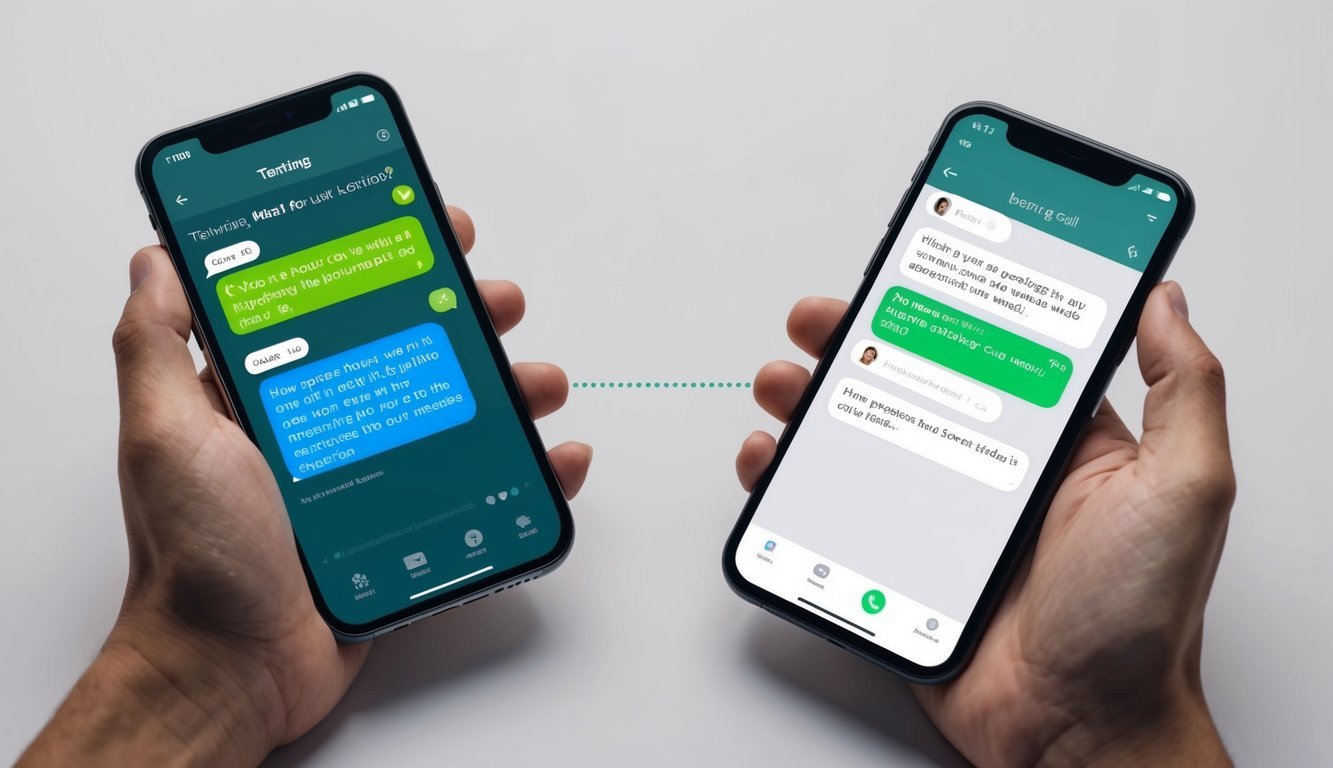
Modern communication brings both opportunities and challenges. People often struggle to choose between texting and calling, and how these choices can affect relationships. Two key issues arise: the need to balance connectivity without neglecting those nearby and the importance of supporting others through their preferred communication medium.
In today’s world, people can easily get distracted by their devices. This often leads to phubbing, where someone ignores those around them to focus on their phone. Phubbing can damage relationships, making people feel undervalued.
To balance connectivity and face-to-face interactions, it’s vital to set boundaries. For instance:
This strategy encourages stronger bonds with friends and family, reducing the risk of phubbing and enhancing communication.
Everyone has their own way of communicating. It’s essential to consider what works best for each person.
To support others effectively:
By being mindful of individual preferences, stronger connections and more meaningful conversations can develop. This thoughtful approach makes a significant impact on relationships, fostering understanding and support.
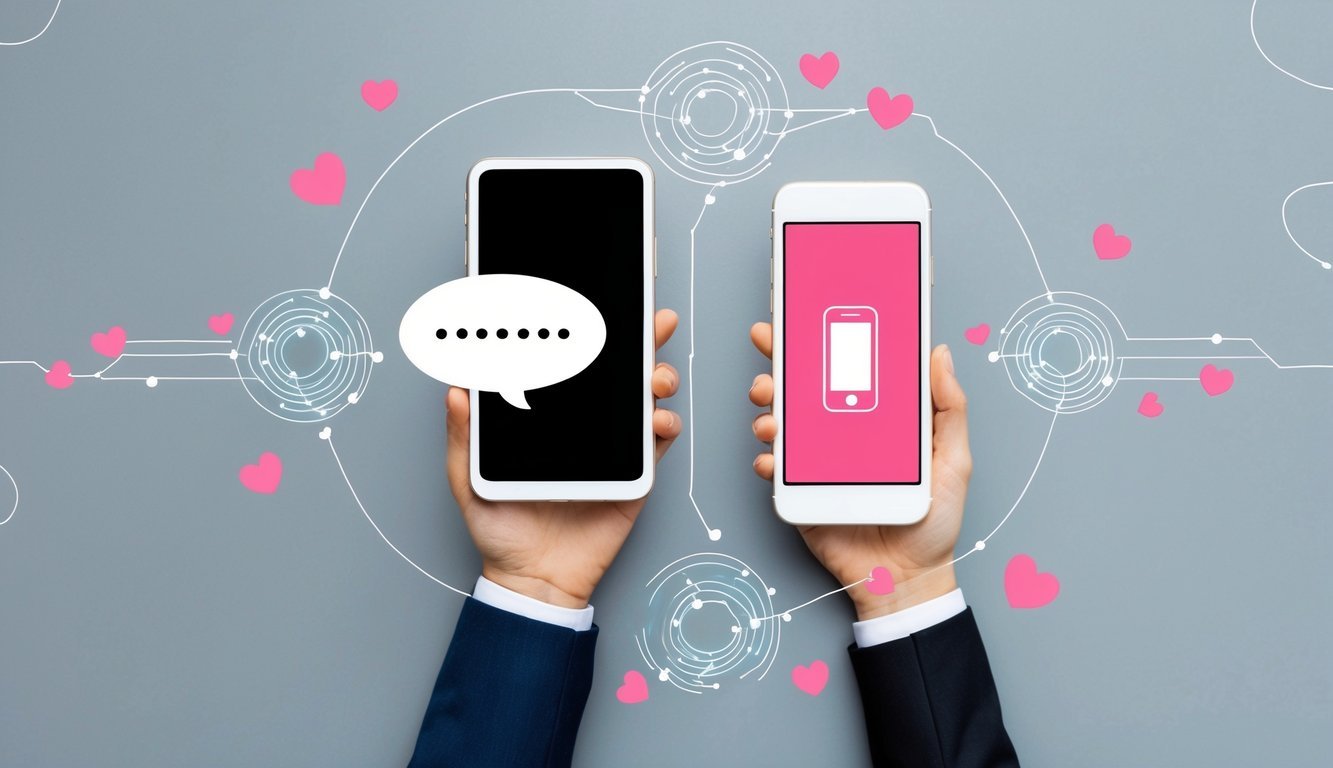
This section explores common questions about the effects of texting and calling on relationships. It covers psychological impacts, intimacy levels, preferences, and the advantages and disadvantages of each method.
Texting can feel less personal than a voice call. Hearing a person’s voice can create emotions that text cannot convey. This emotional connection can strengthen relationships and make interactions more meaningful.
Calling tends to foster a higher sense of intimacy. The ability to hear tone and emotion helps deepen connections. In contrast, texting may lead to misunderstandings, which can weaken emotional bonds.
Studies show that many people feel they bond more during calls. Surveys indicate that individuals often report better connection levels when speaking on the phone compared to texting with friends or loved ones.
Texting is quick and convenient, allowing for easy communication. However, it risks lacking emotional depth. Calling requires more time but often leads to stronger emotional bonds, which can be a more meaningful interaction.
Calls tend to create a stronger foundation for personal connections. The immediate feedback and emotional nuances in voice conversations help build trust and understanding. Texting can miss these subtleties, leading to weaker relationships.
Phone calls offer clarity and emotional engagement. Conversations over the phone can result in more genuine interactions and help avoid miscommunications that often occur in texts.